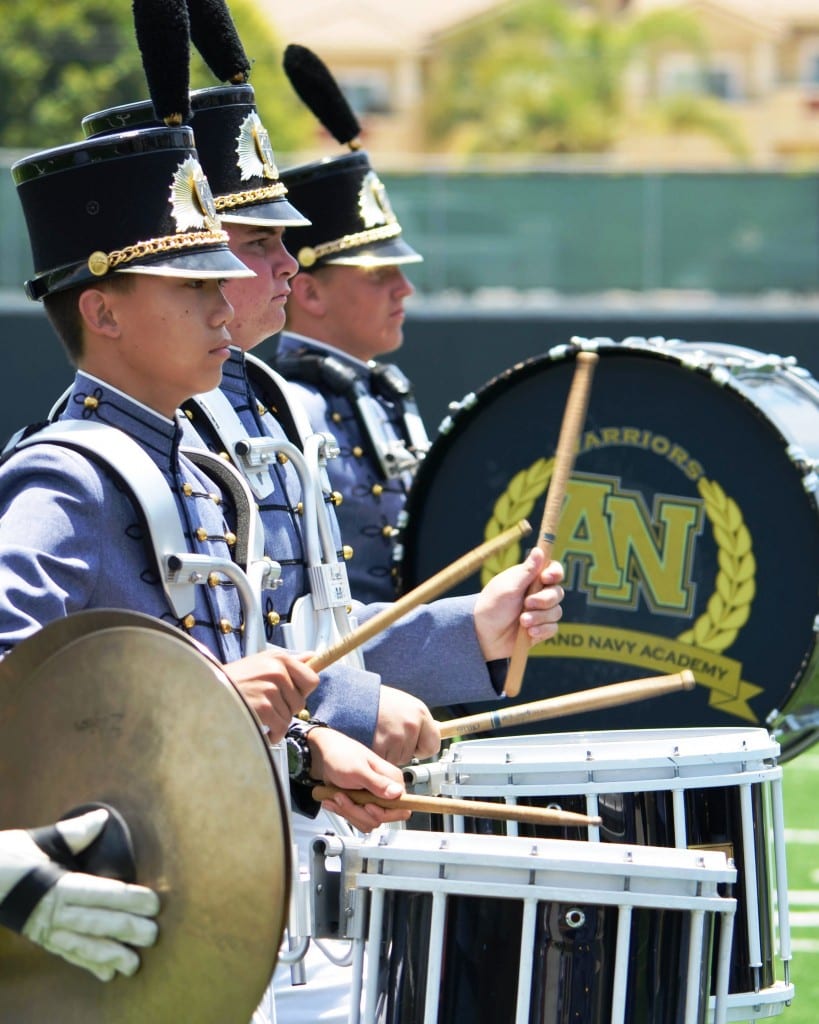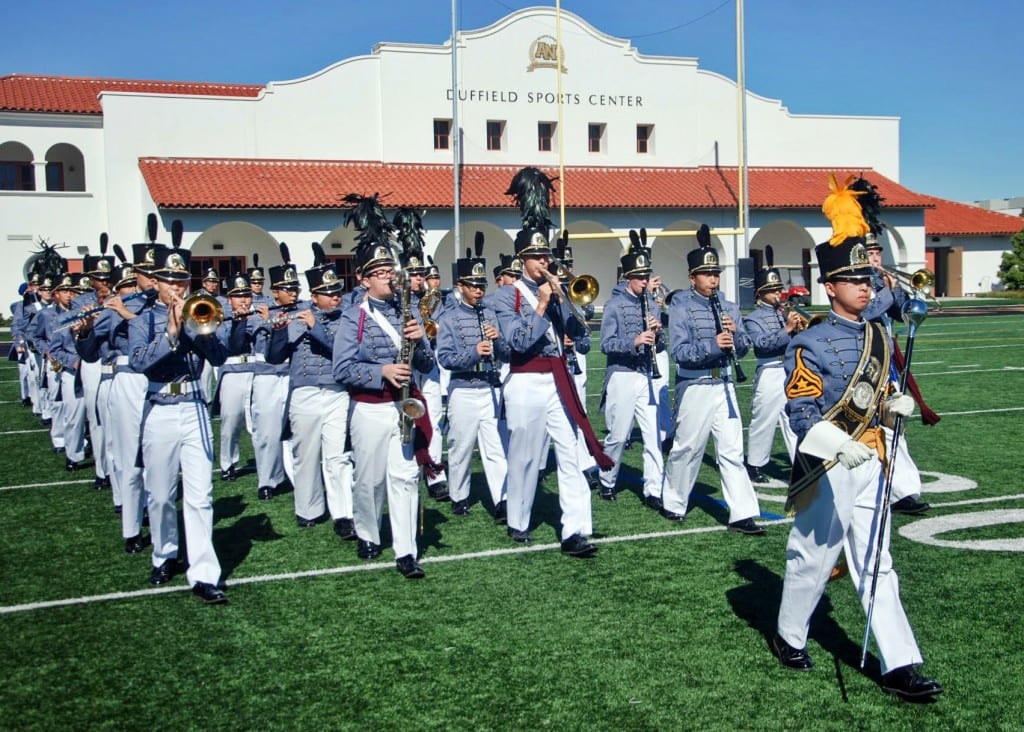
Many people view learning music as a nice goal, but fail to see it as beneficial to larger ideas and life skills. While musical education can be beneficial for its own merit and enjoyment, learning music provides positive influences for young men. Music education provides emotional, social, physical, and cognitive benefits. By getting Cadets involved in music, parents and educators can give them an opportunity to grow as people and gain skills they can carry for a lifetime.
Emotional
- Playing music gives students the chance to learn and practice how to stick with a difficult project until the end. This skill is something a student can carry into other areas, such as learning other subjects or continuing their education.
- Students gain confidence by seeing progression in their skills. This confidence empowers young men to feel as if they can do more tasks and can accomplish more challenges.
- Music has been shown to reduce feelings of stress and anxiety.
- Music can be a vital means of self-expression and channeling of emotions.
- People who play music report increased feelings of relaxation and calmness.
- By learning music, students become more comfortable with taking safe risks and feeling fear. Learning about taking risks in a safe environment is a skill that can create a more thorough process of self-development, and is tied to leadership skill building.
Social
- When young men learn music, they have a chance to meet people from a variety of backgrounds and learn about other cultures by playing different music styles.
- Students learn how to cooperate and participate as part of a team.
- By learning music, students practice trusting others, including authorities.
- Music instruction and performance teaches cadets about discipline by keeping commitments and completing their share of a project.
- Students playing music learn about the give and take of being in a group, such as having to adjust tempo or volume to better the performance. In this case, students learn about cooperation and teamwork.
Physical
- Playing music has been shown to lower the heart rate, which lowers blood pressure.
- Learning music allows students to practice fine motor skills and spatial awareness.
Cognitive and Learning
- Playing music helps memory skills such as the abilities to remember and recall information.
- Studies have shown improvements in reading and math skills among students who study music.
- Students who are actively engaged in musical learning, especially in school-based programs, have been shown to be less likely to drop out of school.
- Learning music increases auditory awareness. This teaches students to pick up patterns within a noisy environment, which can help with language learning and understanding emotional cues in sounds.
- Some studies show that students who learn music have better skills in concentration and focus, which improves testing scores and other markers of academic success.
- Students studying music learn to think creatively to solve problems.
The Many Benefits of a Musical Education
There are many benefits to Cadets participating in musical education. As with any activity, it is important to ensure that each student is enjoying the activity and is actively engaged to truly benefit from the experience. By learning and studying music, students are able to benefit emotionally, physically, socially, and intellectually. These are the kinds of skills that students can use for the rest of their lives, even in areas that are not specifically tied to music.



 Click to FLIP…
Click to FLIP…